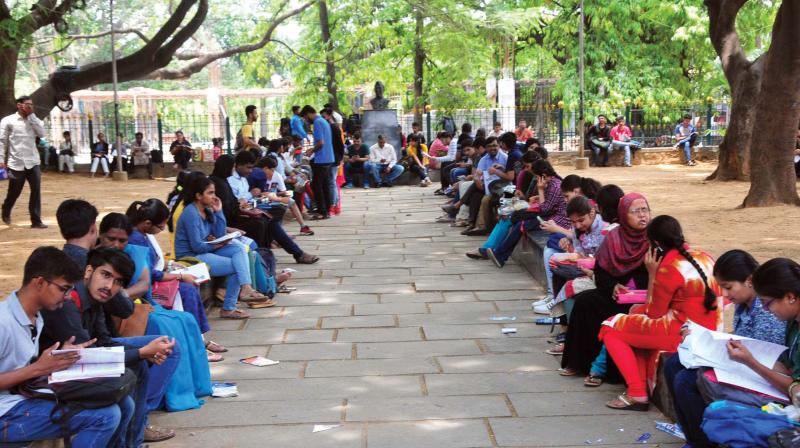Hyderabad: Science students not into politics unlike Arts

Hyderabad: While 26% of faculty at one of the leading central Universities i.e. JNU is in the Science department, the rest 74% is in the Humanities department. While the skewed ratio is being questioned by many stating that the science stream is free from campus politics, professors have stated that the quantum of students is also different.
Professor G. Haragopal, an educational experts states, “Some applications we receive for the science stream come from the industry and therefore they are engaged in projects and they might not be on campus all the time. We also have a wide variety of social science courses and students who are as young as 17 join the same at an impressionable and questioning age.”
The syllabus of both the courses has also played a role in the importance of campus politics. Professor K. Laxminarayana, the president of Save Education says, “Humanities deals with social problems and revolves around the history, economics and the politics of our country.
Students are taught to question the past policies of the government so why not the present. And science stream should not be taught in a rote way as well. Famous scientists have also stood against establishments such as Galileo. Students should learn about the history of great scientists and not just experiments alone.
They should also be capable of forming linkages between present scenarios and voicing out their dissent.” He also stated that more participation is required for campus politics which would be possible if the science stream also took part in the same however ignoring academics was not the right way to do so.
Similarly social sciences encourage students to think outside the box, question and debate which lead to heated discussions and protests. “Social sciences teach children to think outside paradigms. They are tuned in a different way and universities should encourage the same to ensure that they find more in their discipline,” says LaxmiNarayana.

